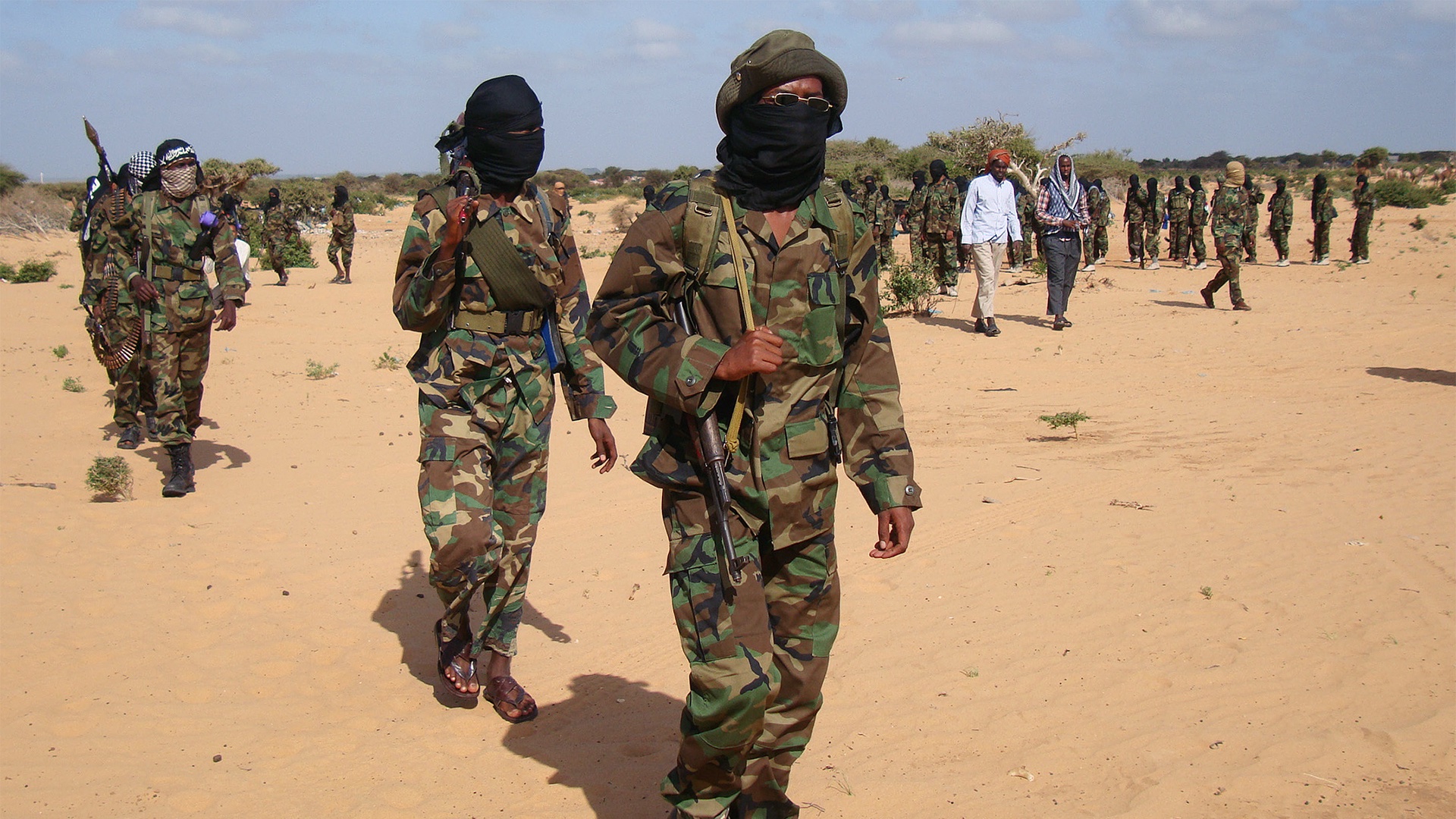

The renewed U.S.-backed offensive in Somalia against the militant group al-Shabaab is yielding results. al-Shabaab has suffered heavy casualties and is losing territory, around a third of the land it previously controlled is back in the government’s hands. That’s according to U.S. Ambassador to Somalia Larry André, who spoke with Voice of America’s outlet for Somalia.
“Somali-led offensives have restored Somalia’s sovereignty to 1/3 of the territory formerly misruled by al-Shabaab,” Larry André said in an email to VOA Somali. “Ending al-Shabab’s oppression is one step further toward Somalia’s full revival.”
Subscribe to Task & Purpose Today. Get the latest military news, entertainment, and gear in your inbox daily.
The claim comes after an increased period of fighting against al-Shabaab in Somalia. In the summer of 2022, new Somali President Hassan Sheikh Mohamud announced a fresh offensive against the militant group, calling for “total war” against it. In the seven months since, the Somali National Army has carried out raids and attacks on al-Shabaab-controlled villages and strongholds.
That push has been supported by the United States, which has been carrying out airstrikes against al-Shabaab fighters as Somali ground forces engage them. American troops are also providing training for the Somali army, including the specialized Danab battalion. In January, the United States announced the transfer of arms, vehicles and medical supplies worth $9 million to Somalia to aid in its fight. That included more than 60 tons of Kalashnikov rifles, machine guns and ammunition for the weapons, which arrived in the country at the end of February.
al-Shabaab had been on the decline in the early 2010s, following fighting with the newly established federal government, but has had a resurgence in the last six years. Since federal forces started their new offensive, al-Shabaab has launched a counter offensive focused on insurgent strikes, carrying out a deadly attack on a Mogadishu hotel in November that killed eight civilians.
The militant group once controlled wide swaths of the country, including the capital of Mogadishu, but now has been mainly centered in Somalia’s southern and central areas (other parts of the country fall under autonomous control separate from the federal government based in Mogadishu). There are other militant and terrorist groups in Somalia in conflict with the federal government — including a branch of the Islamic State, which the United States has targeted — but al-Shabaab has been the largest organization, both in the number of fighters and area controlled.
Since the start of the year, the United States has carried out at least half a dozen air strikes on al-Shabaab fighters, in support of Somali troops. That’s already nearly half of the 15 confirmed air strikes conducted in 2022. That’s still below the peak of at least 59 carried out in 2019, before the Trump administration pulled troops out of the country in 2020. There are currently roughly 500 American troops in the country, since the Biden administration reversed that decision last year.
Somalia is currently in the midst of a major drought affecting much of the country, both in government and al-Shabaab controlled areas. That drought killed at least 43,000 people last year, according to a joint United Nations and Somali report released in March.
The latest on Task & Purpose
- No, the VA isn’t going to reduce your disability payments if you make too much money
- Air Force 1-star general relieved for ‘shortfalls’ in personal conduct
- What are America’s goals in Ukraine? It’s not totally clear
- Russia is dusting off ancient tanks as losses mount in Ukraine
- How the Battle of Nasiriyah foreshadowed the long slog of the Iraq War
